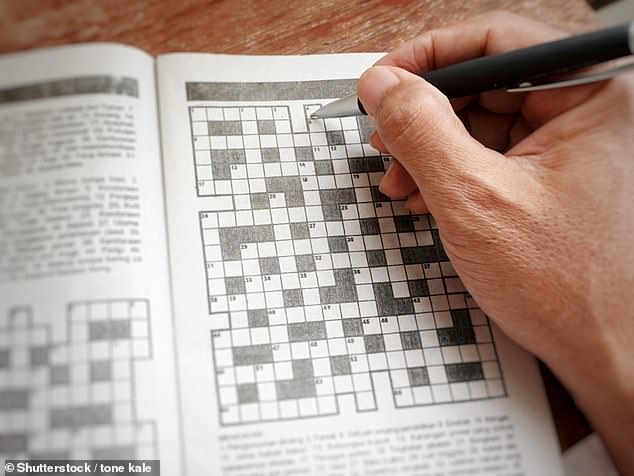[ad_1]
Scientists have confirmed that a healthy body really does equal a healthy mind—and the opposite is true, too.
A new study, published in medical journal Nature, looked at the link between ‘youthful’ organs and longevity.
By measuring certain protein strands in the blood, researchers were able to determine that organs can age at different rates, even when inside the same person.
An older biological age of organs was linked to an increased future risk of several diseases and causes of death, including heart failure, progressive lung disease COPD (Chronic Obstructive Pulmonary Disease), type 2 diabetes, and Alzheimer’s disease.
The team, led by Hamilton Oh of Stanford University, also noted that there was a strong correlation between an ‘aged’ brain and an increased risk of developing Alzheimer’s.
Similarly, having a ‘youthful’ brain ‘provided protection’ from cognitive decline.
But how do you keep your brain—and other organs—young?
The study suggested that a routine of vigorous exercise, a diet rich in poultry and oily fish, and keeping your intellect sharp with further education can all help.

Research has found a simple crossword can help reduce your risk of developing dementia
Meanwhile, smoking, alcohol, eating processed meat, a lack of sleep, and living in a deprived area accelerated organ aging.
In fact, these lifestyle changes that keep your organs youthful can also help you live longer, found the research by Stanford Medicine.
However, you don’t need to sign up to further education to keep your brain young—a simple crossword in the morning can do the trick.
Other research has found the five-minute activity slows down memory decline in the early stages of dementia.
Previously, researchers found moderate-to-vigorous exercise lowers risk of dementia by 41 per cent.
This is exercise which gets the heart racing and breathing to the point you can still speak but not sing, like brisk walking, jogging or cycling.
However, some scientists suggest high intensity workouts (HITT) could be better than cardio for staving off dementia, because they force more blood to the brain.
HITT sees people do short bursts of intense exercise with 80 per cent of their effort, followed by a recovery period to allow their heart rate to drop again.
Often, they involve quick exercises like burpees, mountain climbers, jump squats, kettlebell swings and treadmill sprints.
However, it is best to avoid high-intensity workouts before bedtime, as a study found it reduces sleep, which can increase your risk of dementia.
Other researchers have suggested the ideal age to ramp up exercise to prevent dementia is between the ages of 45 and 65.
But experts have warned that pushing yourself too far during exercise can trigger life-threatening brain-bleeds.
Last month, a super-fit personal trainer claimed medics blamed her sudden brain bleed on ‘years of overdoing it at the gym’.
Linzi Todd, from Northampton, suffered a massive brain bleed in March triggered by fluid leaking from her spine, that doctors put down to her history of intense exercise.
Previous studies have suggested excessive exercise may trigger brain bleeds, leading to potentially fatal strokes or brain haemorrhages.
Other research has proposed lifestyle changes that can reduce your risk of dementia—a condition that slowly takes away loved one’s memories.

According to scientists cases of the debilitating condition are predicted to rise to 1.4million in the UK
This includes preventing hearing loss, socialising, quitting smoking, and maintaining a healthy weight.
More than 944,000 people in the UK are thought to be living with dementia, while the figure is thought to be around seven million in the US.
In the UK dementia cases are expected to sky-rocket to 1.4million people by 2040 according to University College London scientists.
Recent analysis by the Alzheimer’s Society estimated the overall annual cost of the dementia to the UK is £42billion a year, with families bearing the brunt.
An ageing population means these costs—which include lost earnings of unpaid carers—are set to soar to £90billion in the next 15 years.
A separate Alzheimer’s Research UK analysis found 74,261 people died from dementia in 2022 compared with 69,178 a year earlier, making it the country’s biggest killer.
Classic early signs of the devastating illness are memory loss, difficulty concentrating, communication difficulties, and changes of mood.
However recent studies have found changes in sight, hearing, touch and balance are little-known signs that can strike years before more well-known symptoms.
Experts called for these sensory changes to be included in diagnostic tests to help people be diagnosed sooner.
An early diagnosis for dementia is considered critical as, while the condition is incurable, treatments can combat symptoms and sometimes slow progression.
[ad_2]
This article was originally published by a www.dailymail.co.uk . Read the Original article here. .

